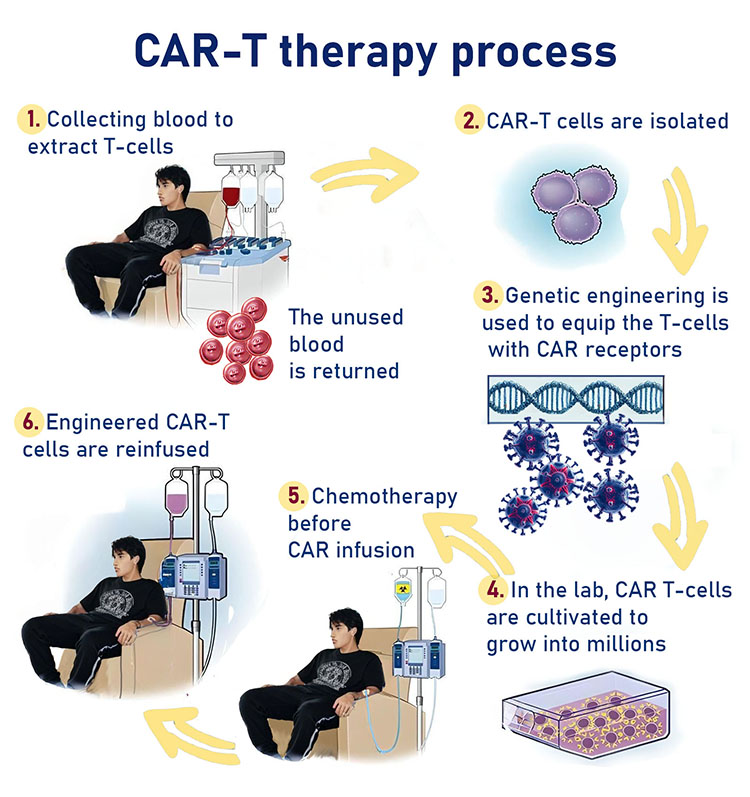CAR T-cell therapy is exceptionally expensive due to a combination of factors that encompass its unique and complex treatment process, research and development costs, and the personalized nature of the therapy. Here are the key reasons:
- High Research and Development Costs: Developing CAR T-cell therapies involves extensive and costly research. The process of discovering, testing, and ensuring the safety and efficacy of these therapies requires years of clinical trials, which are expensive to conduct. The investment in research and development is significant, and these costs often get reflected in the final price of the therapy.
- Complex Manufacturing Process: CAR T-cell therapy is a form of personalized medicine. It involves extracting a patient's own T-cells, genetically modifying them in a laboratory to target cancer cells, and then reinfusing them into the patient. This process is intricate, requires specialized facilities, and needs to be carried out under highly controlled conditions to maintain quality and safety. The manufacturing process is labor-intensive and time-consuming, contributing to the high cost.
- Specialized Equipment and Labor: The production of CAR T-cells requires cutting-edge technology and highly skilled labor. The process involves sophisticated equipment for gene editing and cell culturing, and it must be performed by trained specialists. This requirement for specialized expertise and technology adds to the overall cost.
- Regulatory Compliance and Quality Control: Strict regulatory standards are in place to ensure the safety and efficacy of CAR T-cell therapies. Meeting these regulatory requirements involves additional costs related to quality control, testing, and compliance with regulatory frameworks. These steps are essential but add to the overall expense of the therapy.
- Limited Patient Base: CAR T-cell therapies are currently approved for specific types of cancers and often used as a last resort when other treatments have failed. This limited patient base means that the cost of development, manufacturing, and distribution has to be recouped from a smaller number of treatments, leading to a higher cost per treatment.
- Hospital and Support Services Costs: Administering CAR T-cell therapy requires a hospital stay and a comprehensive support system to manage potential side effects, such as cytokine release syndrome. These support services, including intensive care facilities and specialized staff, contribute to the overall cost of the treatment.
In summary, the high cost of CAR T-cell therapy is a reflection of its personalized nature, the complexity and cost of its production, the necessity for specialized facilities and skilled personnel, and the extensive research and regulatory processes required to bring such a therapy to patients.
Find out why the price of CAR-T in Israel is more accessible.











